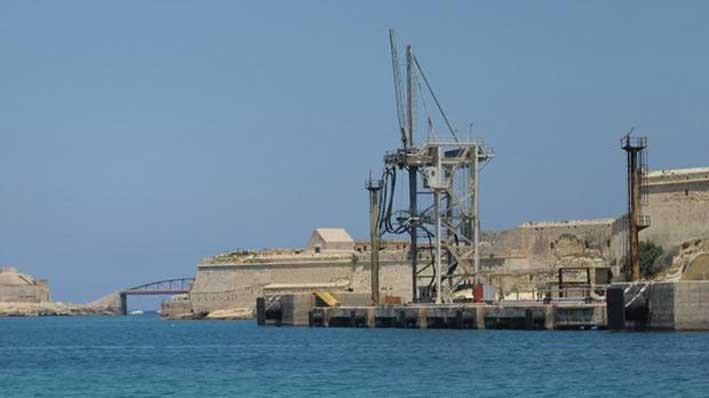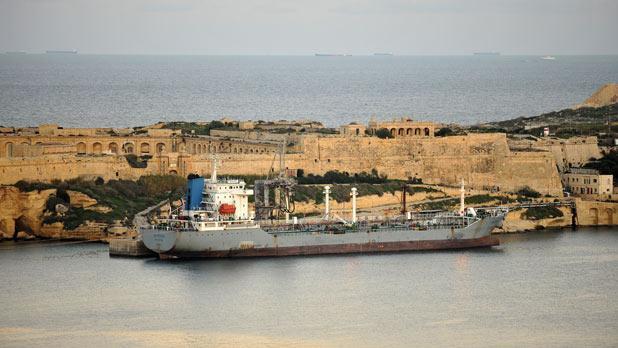The Ricasoli tank cleaning depot was set up in 1964 as part of Malta's international obligations as a harbour. Since then, none of its facilities have been upgraded, save for an attempt that began in 2013. But the Mepa board today postponed a decision on an application to upgrade the facilities rather than follow the Directorate's advice and refuse the application.
Essentially, the application called for the upgrading of treatment technologies to meet new environmental standards. Other interventions include:
- the upgrade of oil and water treatment facilities;
- the upgrade of the waste water treatment process;
- refurbishment of the facility including all storage and treatment tanks;
- replacement of all boilers;
- construction of a new boiler house and ancillary stores;
- construction of a new office block with new premises such as laboratory and control room;
- relocation of fresh water tank and construction of spill containment areas;
- upgrading of all pipeworks;
- improvement of emission to atmosphere control.

At the end, the Directorate's advice to the board was to refuse the application:
1 The proposed development will have an adverse impact within a Grade 1 scheduled area which contains significant heritage value, and therefore runs counter to Structure Plan Policy UCO 13 which seeks to conserve structures of architectural, historical and townscape importance, gardens and other areas of architectural or historical interest.
2 The proposed upgrading of existing Ricasoli Port Facility would compromise the long term planning of the area covered by the Grand Harbour Local Plan Policy GK 18 and Policy GK 19, which aim at discouraging further investment in the plant and promote its relocation.
3 The proposed development, particularly due to the construction of stores and workshops and the redevelopment of the office block, runs counter to Structure Plan Policies UCO 5 and UCO7 which seek the relocation of inappropriate uses from within listed buildings, the removal of accretions to listed buildings and their preservation.

But things are not that simple.
The facility covers an approximate area of 15,000sqm and includes a jetty area and a storage area containing several slops reception and treatment tanks and necessary facilities. The jetty area is located at the Fort Ricasoli's southern coastal boundary and consists of a 100m long jetty and two dolphins situated at either ends of the jetty. The storage area contains six tanks for slops storage, each having a capacity of around 3000cu. m. The facility also includes a boiler house containing three steam boilers, a compressor house containing two electric driven air compressors and electricity power substation. Next to the boiler house there are three storage tanks - one for storing diesel (3.4 cu.m.) and two interconnected tanks (16cu.m. and 18cu.m.) for storing and feeding of heavy fuel oil to the steam boilers. Other structures on site are office block, workshop and stores. There is also a tank for the storage of boiler feed water of a capacity of 250cu.m. and three pre-mix units for mixing of foam with water for fire fighting purposes
Later in the discussion it transpired that tank cleaning is still very much in demand by ships that enter the Maltese harbours but no ship is to be seen nowadays near the tank cleaning facility because this is now forced to clean a rather minute amount of water mixed with oil that comes from ships whereas the demand would be some four times larger.
It was hinted that previous to the present company that manages the facility, the Falzon Group, when the facility was in the hands of the Dockyard no ecological controls were in action and what looked like water was allowed down to the sea.
Today, there are innumerable rules, regulations and directives and even so, as the Directorate told the board, the present operators are still in the process of improving their operation.
The present operators came to manage the facility as a result of a contract signed on 4 January 2013 and this contract has 30 years to run.
What they were asking Mepa was for a limited upgrade of the existing facilities without looking beyond 2043. Mepa on the other hand would have wanted the entire facility to be relocated but no one has any idea where this could be moved to. Besides, it was pointed out that the international rules state there must be one such facility in a harbour.
The operators said that since no ships are using the facility, they collect used oil from ships through road tankers which then bring it to the facility.
Board member Victor Axiaq who is an engineer found himself immersed in a technical conversation with the operator's foreign expert with the professor being at least initially rather sceptical that the facility is really cleaning the effluent before allowing it down to the sea in view of recent stories of black water seeping and colouring the rocks.
The board at last agreed with a suggestion originally put forward by Ryan Callus MP who pointed out that Transport Malta, who must have a great say in the matter had not even been consulted by the Directorate and that the board must hear what TM has to say.
Additionally, the board wants to examine the tender and the contract.
The over-riding impression one got is that Mepa today is far more sensitive to the proximity of the rather dilapidated Fort Ricasoli, about which there is currently an application for its restoration, and that no amount of upgrading of the facility could alter the fact that it uses the fort's walls as a bund wall. Everybody seems to want the facility to go somewhere else but no one has any idea where this can be relocated. And international laws (and the operators' contract with the government) say there must be one such facility in the harbour.
As one board member commented, this was a gross mistake (zball goff) committed in 1964 of which we are still suffering the consequences.